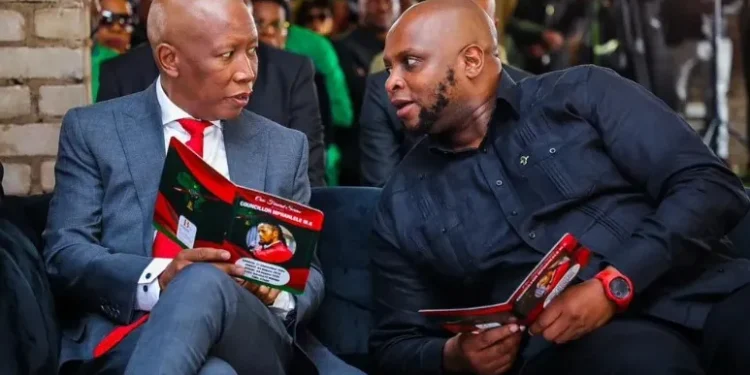Following a series of sharp statements from the Economic Freedom Fighters (EFF) labeling the uMkhonto weSizwe (MK) Party as their main rival, tensions between the two parties have intensified. The Secretary-General of the MK Party, Floyd Shivambu, swiftly responded, dismissing the EFF’s remarks as politically motivated and baseless.
At a press briefing, Shivambu—a key figure in the MK Party and former high-ranking EFF member—rejected the allegations and firmly defended his party’s role in South Africa’s political landscape. He argued that the EFF’s criticism was an effort to weaken the MK Party’s rising influence and its commitment to upholding the legacy of uMkhonto weSizwe, the ANC’s former armed wing.
Shivambu, a contentious figure since his departure from the EFF, emphasized the MK Party’s focus on unity and national development. He insisted that the party is not an enemy of the EFF but a movement dedicated to empowering South Africa’s marginalized communities. According to him, the EFF’s divisive rhetoric aimed to stifle any political opposition challenging its dominance within the far-left spectrum.
The MK Party has been gaining support among voters disenchanted with established parties, including the ANC. Shivambu maintained that his party’s growth stems from a commitment to revive South Africa’s liberation and anti-imperialist principles.
His response has fueled further debate about the future of leftist politics in the country. With both parties vying for influence ahead of the 2024 elections, their rivalry is set to shape the political landscape. While the outcome remains uncertain, one thing is clear: the battle for supremacy within the radical left is far from over.






















